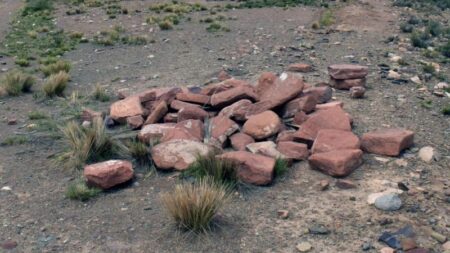The realm of cosmological research has consistently remained at the forefront of scientific discourse, with ongoing studies illuminating various aspects of our universe. A significant recent development arises from the Dark Energy Spectroscopic Instrument (DESI), a collaboration involving over 900 researchers, which has provided fresh insights about dark energy—an enigmatic force constituting approximately 70% of the energy content in the cosmos. This discovery hints at the possibility that dark energy may not be static, as previously thought, but may evolve over time, potentially reshaping our understanding of the universe’s expansion and its ultimate fate.
Dark energy, a term coined to describe an unseen force that drives the acceleration of the universe’s expansion, still eludes complete scientific understanding. Mustapha Ishak-Boushaki, a professor of physics and astrophysics at the University of Texas at Dallas, elaborated on this conundrum, noting the lack of definitive knowledge regarding the properties of dark energy despite its dominion over the cosmos. Engagement in this realm has led Ishak-Boushaki to assume a leadership role in DESI’s working group, contributing to the ongoing efforts to decode the phenomena associated with dark energy.
The DESI project is positioned atop the Nicholas U. Mayall 4-meter Telescope located at Kitt Peak National Observatory in Tucson, Arizona. This advanced instrument boasts an impressive capability to observe light from 5,000 galaxies simultaneously. As of a recent data release on March 19, spanning three years of observations, DESI has measured nearly 15 million galaxies and quasars. This monumental endeavor aims to construct one of the largest 3D maps of the universe, charting the influence of dark energy over a span of 11 billion years.
In light of these observations, evidence is accumulating that suggests dark energy may be evolving and could even be weakening over time. This represents a profound shift in the perspective held by many astronomers, including David Weinberg from The Ohio State University, who described the new findings as the strongest indication yet that dark energy is not the constant force once believed. Such revelations imply that the existing cosmological models, which depict a static universe governed by unchanging laws, might require significant revisions to accommodate new insights about dark energy dynamics.
New data from DESI, boasting measurements of over double the cosmic objects previously surveyed, sheds light on the baryon acoustic oscillation (BAO) scale—a relic of early universe events, which could be likened to a significant cosmic ruler for understanding the distribution of matter in the universe. The insights derived from the BAO scale have laid foundational knowledge for astronomers to measure distances across the cosmos, which is instrumental in examining the universe’s expansion rate.
The sophisticated design of DESI, capable of tracking multiple independent objects simultaneously, enhances its utility in deriving insights into dark energy’s effects through a mix of observations. Researchers have observed a potential weakening in dark energy when correlated with traditional measurements, such as supernova light and gravitational lensing effects, revealing a notable tension between early and late universe measurements. These findings prompt further inquiry into the ongoing evolution of dark energy and raise questions about the fundamental nature of our universe.
Though the current evidence does not definitively assert that dark energy is evolving, the prospects for future discoveries remain promising. Researchers like Paul Martini have expressed eagerness for continued monitoring and improved observations as critical tools like the Spec-S5 and other space telescopes are set to come online in the coming years. These instruments, including the forthcoming Nancy Grace Roman Space Telescope and the Euclid space telescope, are expected to provide additional measurements that will illuminate the mysteries surrounding dark matter and dark energy, offering new models for understanding the cosmos.
Further studies and measurements may ultimately reveal a new paradigm in cosmology, driving scientists to delve deeper into the very fabric of the universe. The prospect of a more complex understanding of dark energy may challenge existing theories and theories, prompting a reevaluation of our cosmic narrative. As researchers continue to explore the implications of dark energy’s potential evolution, they inch closer to uncovering one of humanity’s most profound questions about the universe’s past, present, and future.












